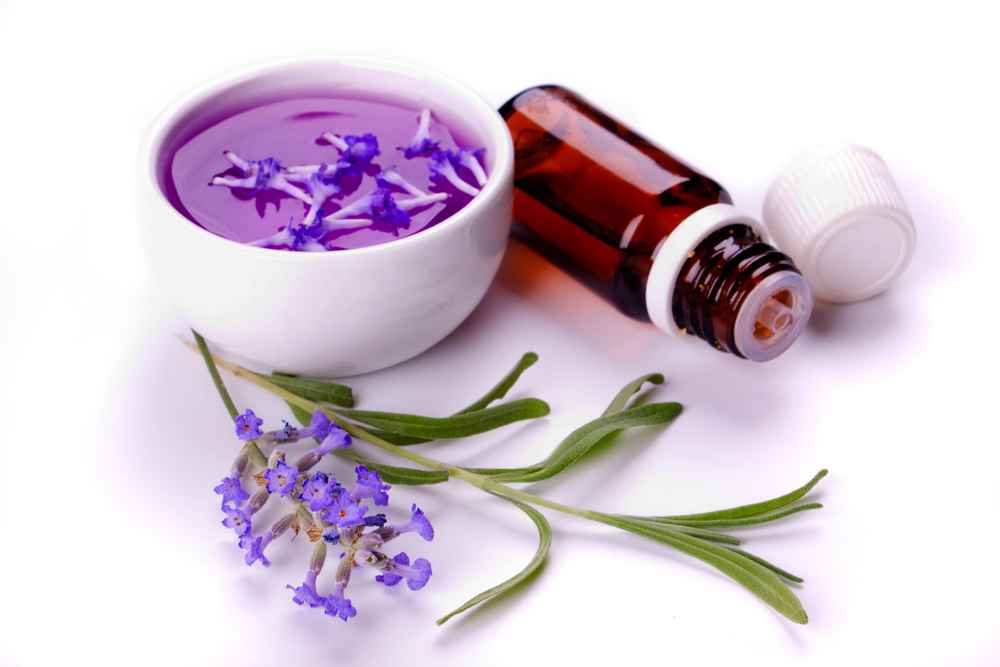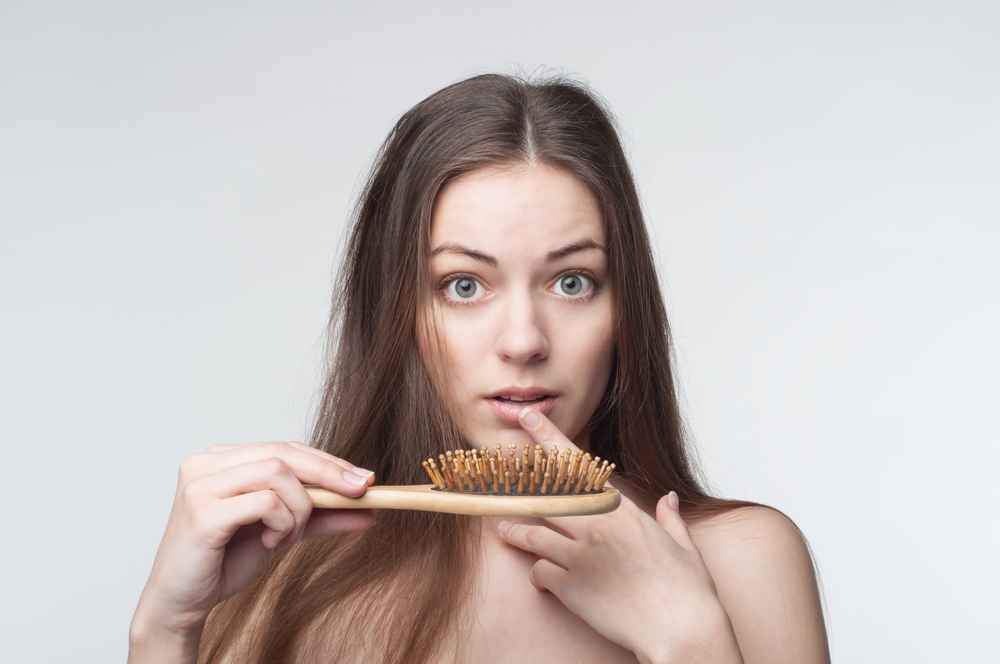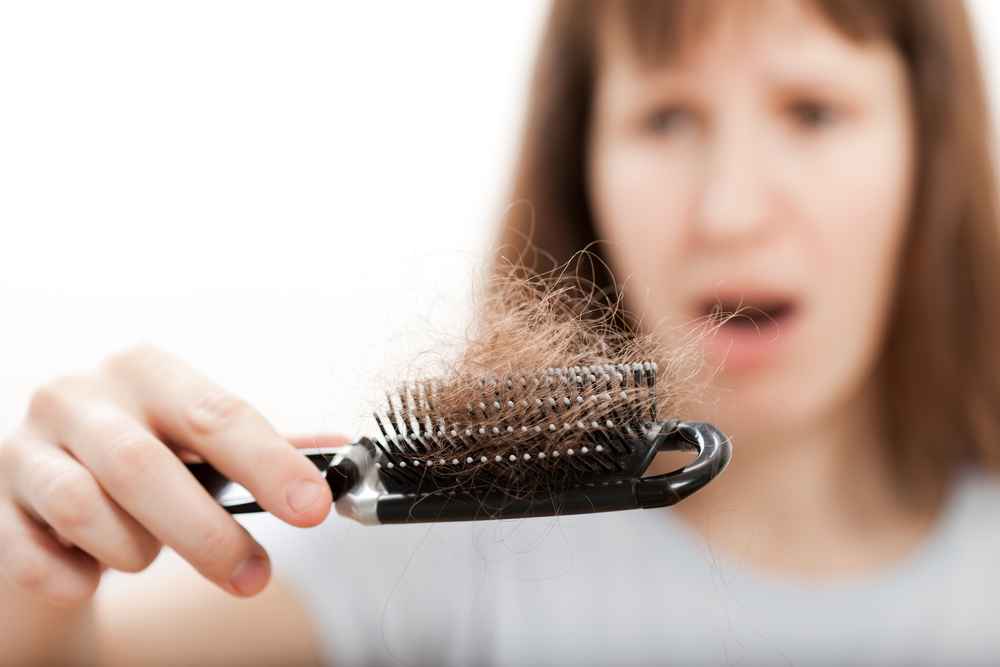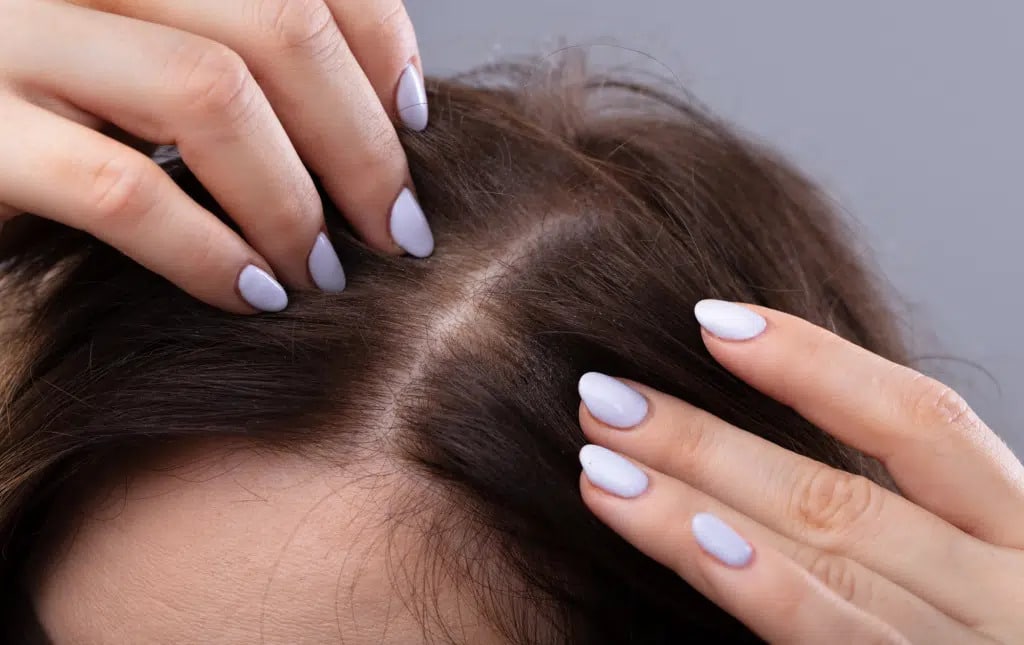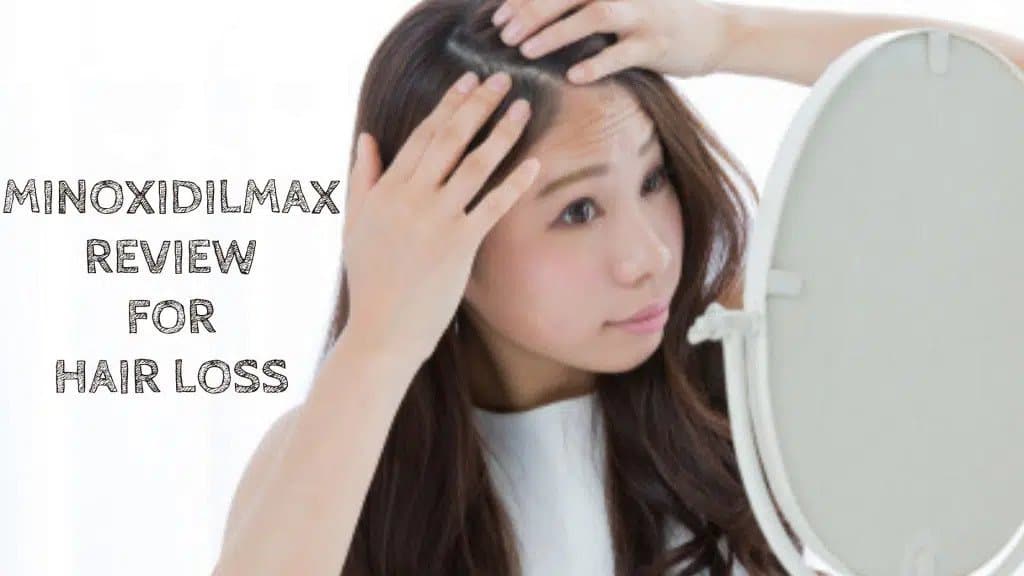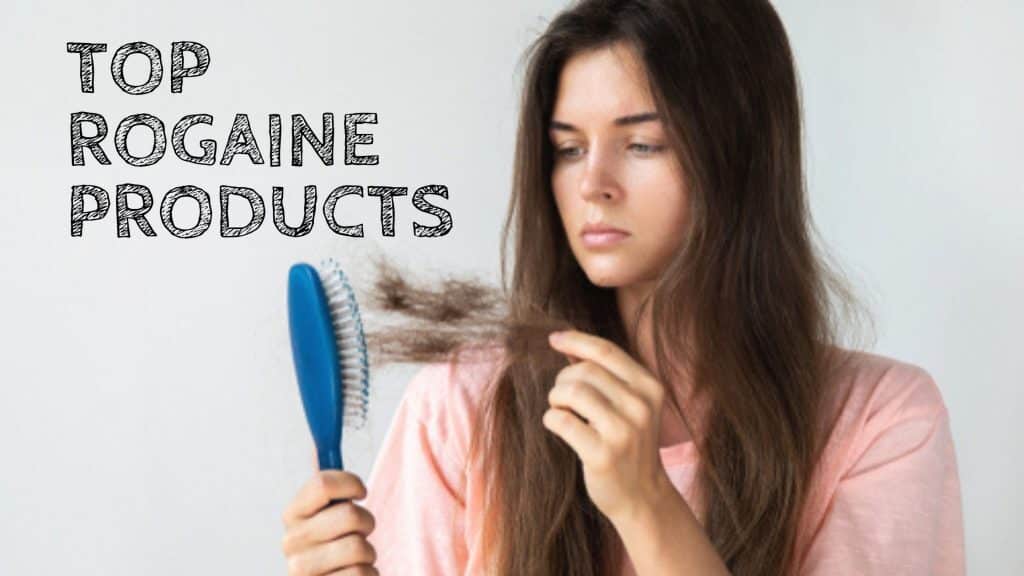In this article I’ve listed out the best essential oils to stop hair fall and how to use these essential oils in hair masks and hair growth serums.
For over a decade, I’ve witnessed both sides of the hair loss coin – the heartbreak and the triumphant regrowth. As a trusted haircare expert and stylist, I’ve seen essential oils work wonders for countless clients experiencing thinning and shedding.
Let me dive into the botanical world, unveiling which potent oils hold the key to unlocking healthier, fuller hair, backed by my 10+ years of experience at the forefront of hair wellness. Get ready to discover natural solutions that can truly transform your crown!
Check out our pick for hair loss products here. These are what we have used.
Which is the Best Essential Oil to Stop Hair Fall?
Rosemary oil is the best essential oil to stop hair hall. Rosemary oil stands out for its potent hair-supporting qualities. Its stimulating properties increase scalp circulation, promoting hair growth at the follicle level. Plus, its anti-inflammatory nature combats scalp issues that can contribute to hair loss.
Remember, essential oils work best alongside a holistic approach addressing underlying causes and proper hair care practices.
Many studies have shown the effectiveness of essential oils for the treatment of hair loss with rosemary oil showing to be just as effective as minoxidil at increasing hair re-growth.
Let’s take a look at five of the best essential oils to stop hair fall and get your hair growing thick and luscious again.
Essential Oils to Stop Hair Fall That Actually Work
Rosemary Oil

Rosemary oil offers a wealth of benefits for the skin, hair and stress levels. Many years ago people used this powerful oil to treat head lice, dandruff, greasy hair and itchy scalps.
Because of its regenerating properties, it’s great for maintaining general hair health and like previously mentioned, it’s been proven to be as effective as some medications at encouraging hair growth.
To use: Mix it with a carrier oil like coconut or jojoba oil. Massage it into the scalp, let it sit for 10 minutes and rinse out.
Peppermint Oil

Peppermint oil is another little powerhouse which has the ability to calm the gut, stimulate the senses and promote hair growth. In a 2014 study, it was shown to increase the follicle count and depth over four weeks on mice who had been treated.
To use: Mix it with a carrier oil like coconut, shea or jojoba oil. Apply to the scalp, leave for 10 minutes and shampoo out like you normally do. Due to its high content of menthol, do not put directly onto the face.
Lavender Oil

Lavender oil is an extremely versatile oil, effective at treating many issues. It’s been used for years to promote new hair growth with countless people seeing fantastic results. It can even improve scalp health with its antibacterial and antimicrobial properties.
To use: Mix 3 tablespoons of a carrier oil with several drops of lavender oil. Massage the mixture directly into the scalp and leave at least 10 minutes. Wash out as normal.
Cedarwood Oil

Cedarwood oil may help promote new hair growth by assisting in balancing out scalp oil glands. Because of its anti-fungal and antibacterial properties, it’s also helpful for relieving dandruff and itchy scalp conditions. Purchase online or in smaller health food shops.
To use: Mix two drops of cedarwood oil with a carrier oil and massage into your scalp. For even more impact, mix cedarwood oil with lavender and rosemary. This mix was found to be extremely beneficial in treating those with alopecia areata.
Tea Tree Oil

A study in 2013, found mixing tea tree oil with minoxidil (a hair loss treatment given by doctors), resulted in increased hair growth for the participants, than just using minoxidil alone.
Tea tree oil is antibacterial and antimicrobial making it a good way to cleanse the scalp and promote new hair growth. Check the concentration of your tea tree oil before usage as it can vary from highly concentrated to quite mild.
To use: Use it every day by adding drops to your shampoo. Alternatively, mix 2-3 drops with a carrier oil and massage it into your scalp. Leave for up to 15 minutes and rinse out.
Do Essential Oils Really Work For Hair Growth: Is There Scientific Evidence?
The verdict on essential oils for hair growth is mixed. While some research shows promise, more robust studies are needed for definitive conclusions. Here’s the gist:
Promising results:
- Rosemary oil: A 2015 study published in Phytotherapy Research compared rosemary oil to minoxidil (a common hair loss treatment) and found both equally effective in promoting hair growth.
- Other potential contenders: Peppermint and jojoba oils also show potential in preliminary studies, but require further investigation.
How To Mix Essential Oils For Hair Growth And Thickness?
Mixing essential oils is a great way to stimulate hair growth and improve the thickness of your hair. Essential oils can be mixed together to create a powerful blend that will help strengthen hair follicles and reduce hair fall. To make the most of essential oils, here are a few tips on how to mix them for optimal hair growth and thickness:
1. Choose the right oils: Selecting the right essential oils is crucial to achieving the desired effects. Rosemary oil, lavender oil, tea tree oil, and peppermint oil are some of the best options for hair growth and thickness.
2. Choose a carrier oil: Carrier oils are used to dilute essential oils and make them easier to apply. Coconut oil, jojoba oil, and olive oil are excellent options for carrier oils.
3. Mix the oils properly: In general, 2-3 drops of an essential oil are enough for every tablespoon of carrier oil. Always mix the oils well before applying to your scalp and hair.
4. Apply the oil mixture to your scalp: Use your fingertips to gently massage the oil mixture onto your scalp for at least 5-10 minutes. This will help stimulate blood flow, nourish hair follicles, and encourage hair growth.
5. Leave the oil mixture in your hair: Once you have massaged the oil mixture into your scalp, leave it on for at least 30 minutes to an hour.
This will allow the oils to penetrate the hair follicles and nourish them from the inside out. By following these simple guidelines, you can create a powerful blend that will help reverse hair loss, promote growth and thickness, and give you fuller, healthier hair.
Natural Essential Oil Home Remedies To Stop Hair Fall
Natural Essential Oil Home Remedies To Stop Hair Fall If you’re worried about hair fall, chemical treatments might not always be the best solution. Sometimes, the natural remedies are the best, and essential oils are a great starting point.
Essential oils are the pure essence of plants and their extracts have been used for centuries for various ailments, including hair fall. Here are some natural essential oils that can help you with hair fall:
1. Lavender Oil: This oil is gentle and soothing, and is great for reducing stress levels, which could be the cause of hair fall. Mix it with coconut oil and massage it onto your scalp for a few minutes every day. Lavender oil will also leave your hair smelling wonderful.
2. Rosemary Oil: This oil is known to promote hair growth and prevent hair fall. Mix it with a carrier oil, such as sweet almond oil, and massage it onto your scalp for a few minutes. It can also help with scalp conditions such as dandruff.
3. Cedarwood Oil: This oil is great for increasing blood flow to the scalp and promoting hair growth. Mix it with a carrier oil and massage it onto the scalp. It also has a calming scent, making it perfect for reducing stress levels.
4. Peppermint Oil: This oil is known for its refreshing and cooling properties, and can help stimulate hair growth. Mix it with a carrier oil and massage it onto your scalp. It can also help with scalp irritation and dryness.
Essential oils are a natural solution to hair fall that can be used at home. However, it’s important to use them correctly and to test them on a small patch of skin before applying them to your scalp.
With consistent use, you should start seeing positive results in no time.
Essential Oils to Stop Hair Fall – Final Thoughts
Be aware that some essential oils do come highly concentrated. This means there is a risk of skin irritation or an allergic reaction.
To prevent this, always dilute your essential oil of choice with a carrier oil like jojoba, coconut or shea.
But apart from that, essential oils have huge benefits for your hair health.
Regular use should reduce hair fall, increase hair growth, improve shine and strengthen up brittle hair.
Have you tried essential oils on your hair?
What were your experiences?
Let me know in the comments…
Also Read:
To Summarize

